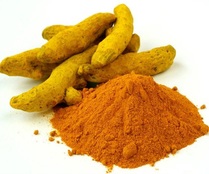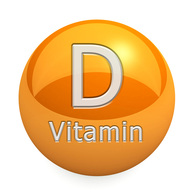Welcome to the Virtual MS Center!
Ask any question you want about Multiple Sclerosis and one of our experts will answer it as soon as possible.
 Question: How much turmeric is needed to be effective? Answer: We do not as yet know the ideal dose of Turmeric acid, since we do not know if it is an effective treatment for MS. It has been studied in a number of human inflammatory conditions, such as arthritis and inflammatory bowel disease, and reported to have some positive effects. Most authorities recommend 400 to 600 mg capsules or tablets three times a day. It is usually mixed with black pepper or piperine to enhance absorption, so make sure one of these components are listed in the ingredients on the supplement bottle. Turmeric is generally well tolerated although some people report mild nausea. There are potential drug interactions so make sure you tell your doctor if you are planning to take this supplement. These interactions include but are not limited to the following:
Hope this information helps. Revere (Rip) Kinkel MD Director of the Multiple Sclerosis Program Professor of Clinical Neurosciences University of California San Diego Question:
Is it OK to take milk thistle and Tecfidera? Answer: Milk thistle has been studied extensively in people with liver disease and diabetes and it may be beneficial in the treatment of these conditions. Some have advocated it’s use in people with MS to reduce oxidative stress associated with chronic inflammation in the central nervous system. We have no information available at present to either support this recommendation or recommend against the use of Milk Thistle. Specifically, there are no reports of any harm occurring in people with MS who take Milk Thistle. Like any other ingested substance there may be some people who do not tolerate Milk Thistle or are allergic to Milk Thistle. Revere (Rip) Kinkel MD Director of the Multiple Sclerosis Program Professor of Clinical Neurosciences University of California San Diego Here is My Question:
I'm taking Tysabri. Can I use Maca? Answer: Maca is a Peruvian Herb with purported properties that could theoretically be beneficial to people with MS. It is said to reduce oxidative stress reactions, and this has lead some people to use it alone or in combination with other treatments for their MS. There is no current evidence of either harm or benefit in people with MS, and there is no particular reason to advocate for or against its use in people with MS. Revere (Rip) Kinkel MD Director of the Multiple Sclerosis Program Professor of Clinical Neurosciences University of California San Diego I was reminded today at our weekly department grand rounds of an extremely important topic that MS specialists often forget; the benefits of folic acid supplementation in pregnancy age women. We spend so much time discussing the use of disease modifying therapies in pregnancy that we often forget about other equally common and well-known risks. It has been known for decades that folic acid supplementation in doses above 0.4 mg per day reduces the risk of neural tube defects such as spina bifida. What women often do not know is that by the time their pregnancy is confirmed, it is often too late to start this supplementation, since neural tube closure is an early event in embryogenesis (first 25 days). More importantly, at least 40 % of pregnancies are not planned in advance.
Why is this topic so important in woman of childbearing ages with MS? Well, one of the most common class of medications used to treat MS related symptoms are the anti-epileptic drugs (AEDs) such as gabapentin, valproic acid, carbamazepine, lamotrigine, phenytoin, primidone and topiramate. We use these drugs to treat MS related pain syndromes, migraine headaches, mood disorders and even the main disorder for which they were developed, seizures. This class of medication, particularly valproic acid, has been associated with a number of major congenital malformations (MCM) and, more recently, disorders affecting behavior and learning including autism spectrum disorders. The risk is even higher with use of more than one of these medications at a time. While most of the data supporting the association of certain AEDs with birth defects come from Epilepsy Pregnancy Registries, there is little reason to believe that this data would not apply to women using these medications for other indications. The reason for the increased risk of birth defects is clear with certain enzyme inducting AEDs such as phenytoin, carbamazepine and the barbiturates (primidone and phenobarbital), all of which cause a reduction in folic acid levels. For valproic acid it has been suggested that the drug interferes with folic acid metabolism. Other more recently introduced AEDs such as gabapentin, lamotrigine, oxcarbazepine and zonisamide have no significant effect on folic acid metabolism and the data on MCM is mixed. Yet most epilepsy specialists recommend folic acid supplementation in all women taking these drugs. So what should you do with this information if you are (a woman) women of childbearing potential regardless of whether you are on birth control? (Birth control can fail)
While the use of folic acid supplementation will not guarantee a child without birth defects, you can at least know you are doing something to reduce this risk. If you have daughters or grandchildren of childbearing ages, please pass this information along. -- Rip Kinkel, MD  Here is a blog that was written about Vitamin D...CLICK HERE Here is a video about Vitamin D as well...CLICK HERE Also, please go to the search box at the top right side of this page and type in Vitamin D, as there is quite a lot about it on this website. -Rip Kinkel, MD Q. "I was wondering if anyone had any knowledge of a supplement called Protandim which supposedly reduces oxidative stress and if anyone is using this for MS as a stand alone therapy or in conjunction with a traditional MS drug - I was asked about this recently and I do not have enough info to answer this correctly - thoughts? Thanks."
Answer: Protandim is a mixture of 5 herbal ingredients, which are strong activators of the Nrf2 anti-oxidant pathway. The company that makes this product has been promoting it heavily for MS since one of the potential effects of Tecfidera (dimethylfumarate), a recently approved treatment for MS, is activation of the Nrf2 pathway. It should be mentioned that there are many naturally occuring activators of the Nrf2 pathway and there is no good evidence that this is the main mechanism of action of Tecfidera. Unfortunately, there are no controlled clinical studies to support the claims of efficacy for protandim in MS and these studies are not even required by the FDA since the product is an herbal supplement. MS patients interested in supplementing their current therapeutic approach to MS may want to consider supplementation with tumeric, milk thistle and green tea, the main ingredients of Protandim. This would be a rationale, low cost approach to supplementation. |
PLEASE NOTE: This information/opinions on this site should be used as an information source only. This information does not create any patient-HCP relationship, and should not be used as a substitute for professional diagnosis and treatment. Please consult your health care provider before making any healthcare decisions or for guidance about a specific medical condition.
Archives
June 2024
Categories
All
|